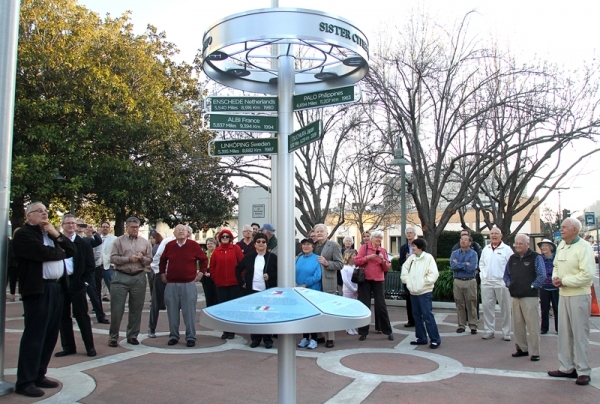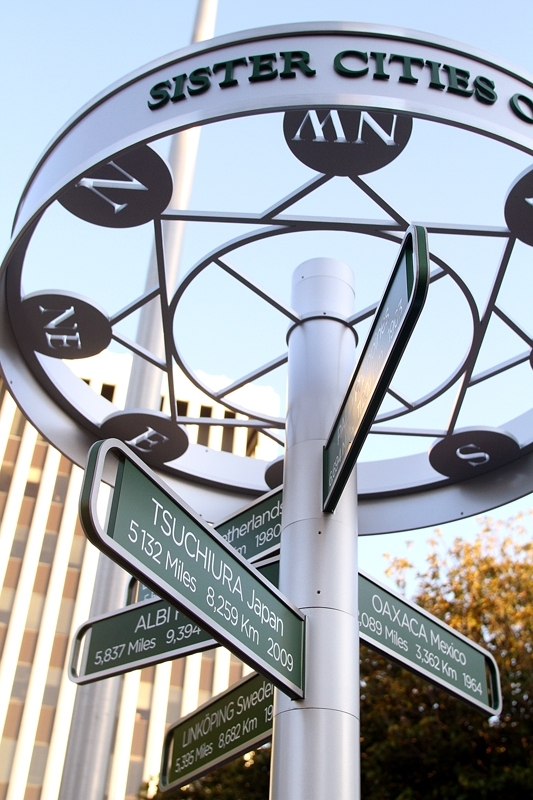Heidelberg, a city of gothic churches, a sprawling castle and Germany's oldest university and library, is about to become Palo Alto's newest municipal sibling.
The Municipal Council in Heidelberg voted unanimously on June 29 to enter into a "sister city" relationship with Palo Alto. Palo Alto's City Council is preparing to reciprocate with a vote of its own in late August or September.
For both cities, the new "sister city" arrangement is an evolution of the "smart cities" agreement they had forged in 2013, during Greg Scharff's first stint as Palo Alto mayor. Scharff, who visited Heidelberg to sign the initial agreement, said he is "totally on board" with expanding the agreement, and the rest of the council is expected to join him in welcoming the German city to its global network.
Once the council extends its formal "willkommen" (German for welcome) to Heidelberg, the German municipality will become Palo Alto's seventh sister city, joining the likes of Palo, Leyte, Philippines; Oaxaca, Mexico; Enschede, the Netherlands; Linköping, Sweden; Albi, France; and Tsuchiura, Japan. Much like the 2013 partnership, it is intended to further encourage cooperation between the two cities in high-technology and sustainability.
Both cities are seen as leaders in these fields. While Palo Alto has a "carbon free" electricity supply and is known by many as the heart of Silicon Valley and the place where companies like HP, Facebook and Google got their breaks (not to mention the setting for the HBO show "Silicon Valley"). Heidelberg boasts Germany's oldest university (Heidelberg University), several renowned research institutes (including four Max Planck Institutes), a thriving biotech scene and a keen interest in renewable energy. In 2015, it won the "Global Green City Award" from the United Nations.
The two cities also have a company in common: German software giant SAP, which has a sizable office at Stanford Research Park.
While the 2013 agreement between Palo Alto and Heidelberg had a five-year time frame, sister-city arrangements are permanent and typically include a cultural component. Palo Alto's agreements with Oaxaca and Tsuchiura have included regular student exchanges. In this case, potential arrangements would be coordinated by the local Neighbors Abroad organization and its German counterpart, Stadtjugendring Heidelberg e.V.
In approving the "sister city" relationship, Heidelberg officials recommended putting a focus on sustainability, with the goal of sharing information and best practices, according to a working paper that the Heidelberg Municipal Council considered before the vote.
Bob Wenzlau, president of Neighbors Abroad of Palo Alto, praised the Heidelberg action and said he looks forward to Palo Alto following suit.
"For Palo Alto, there is much to celebrate and gain from the relationship," Wenzlau wrote in an email to Heidelberg officials. "Our history is young, and your history is ancient. Your progress in sustainability is an inspiration."
Scharff, who took the opportunity during a visit to jog with City Manager James Keene on Heidelberg's famous "philosopher's walk," also said he looks forward to strengthening the ties between the two cities.
"I think it's a dynamic, entrepreneurial college town that's committed to sustainability," Scharff said. "It shares a lot of values with Palo Alto."




Comments
Crescent Park
on Aug 3, 2017 at 4:52 pm
on Aug 3, 2017 at 4:52 pm
Please enjoy this short video introducing Heidelberg. I know we will have a great journey with our newest sister city.
Web Link
Midtown
on Aug 3, 2017 at 5:37 pm
on Aug 3, 2017 at 5:37 pm
How much do these programs cost and how are they funded?
Another Palo Alto neighborhood
on Aug 4, 2017 at 10:48 am
on Aug 4, 2017 at 10:48 am
And if the community of Heidelberg decides in friendship to give us a piece of public art along the lines of foreign friendship, I hope we treat it better than the gift from Linkoping.
Professorville
on Aug 5, 2017 at 5:13 pm
on Aug 5, 2017 at 5:13 pm
[Post removed.]